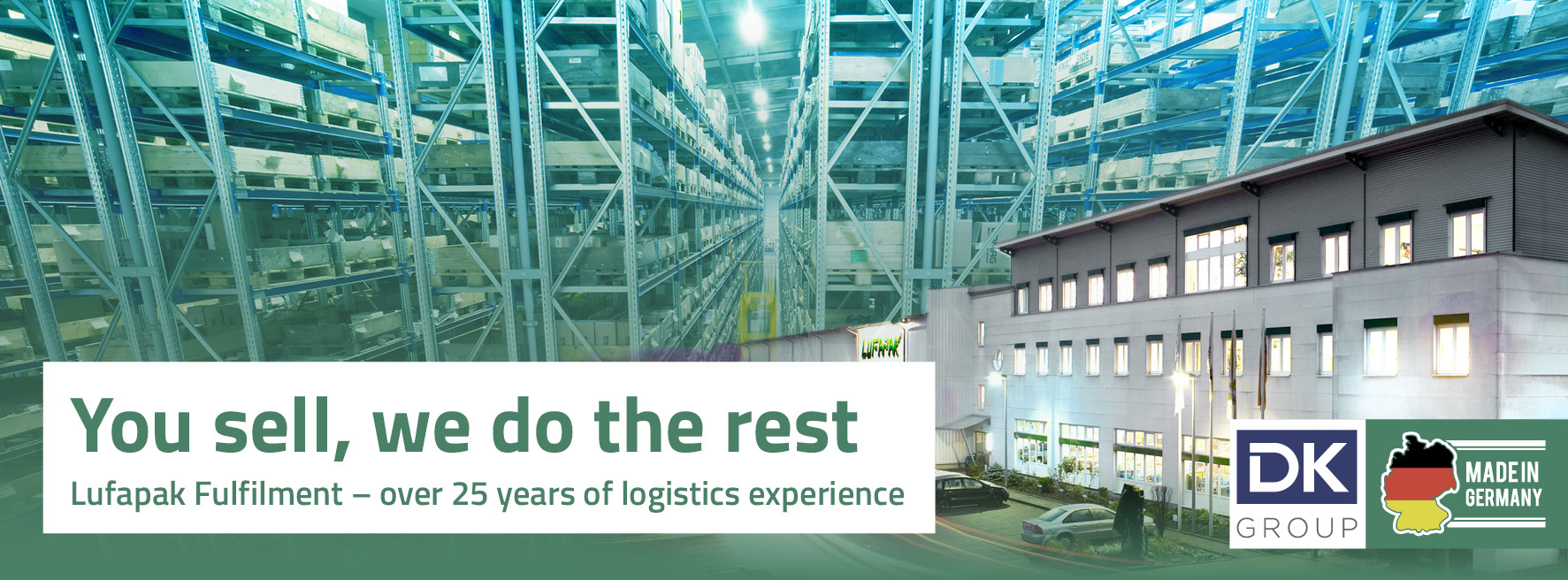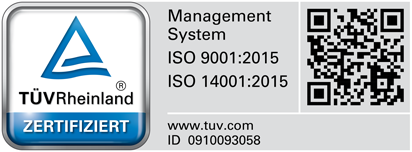sales@lufapak.de +49 2631/384-0 Contactform
Logistics processes
Logistics processes form the backbone of modern companies. The efficient management of goods flows, information flows and resources is crucial to economic success. This article examines the various aspects of logistics processes and highlights optimization potential.
Basics of logistics processes in the company
Logistics processes in a company include all activities for planning, managing and controlling the flow of materials and information. The focus here is on coordination between suppliers, production and customers. Central elements are procurement, storage, transportation and distribution. These processes must be coordinated in order to guarantee the availability of goods and minimize costs. Medium-sized companies in particular benefit from well thought-out logistics concepts that make optimum use of resources. A well-functioning logistics process enables quick reactions to market changes and customer requirements.
Definition and importance of logistics processes
Efficient logistics processes are characterized by the systematic management and control of material flows. These range from procurement to production and distribution. Key success factors here are speed, reliability and cost efficiency. Modern logistics processes use digital technologies for process optimization and real-time monitoring. Transparent information flows enable quick decisions and reduce error rates. The integration of different areas of the company creates synergies and improves overall performance. Small and medium-sized companies in particular significantly increase their competitiveness through optimized logistics processes.
Core elements of warehouse logistics processes
Warehouse logistics processes focus on the efficient management of warehouse stocks and goods flows. Central tasks include goods receipt, storage, stock maintenance and order picking. Modern warehouse management systems support these processes through automated workflows and precise inventory management. Optimizing warehouse organization reduces search times and maximizes the use of space. Efficient warehouse logistics processes minimize capital commitment while ensuring high delivery readiness. The integration of real-time data enables flexible adjustments to fluctuating demand.
Central areas of warehouse logistics processes
The coordination of different areas of warehouse logistics requires precise coordination and clear structures. Qualified employees control the processes with the help of modern management systems. Powerful software supports the optimization of routes and storage locations. Process design is geared towards throughput times and cost efficiency. Standardized procedures reduce error rates and speed up processing. Regular process analyses identify potential for improvement and enable continuous optimization.

Incoming goods and incoming goods inspection
Incoming goods are the starting point for efficient logistics processes in the company. Trained personnel check incoming deliveries for completeness and quality. Digital recording systems document incoming goods and automatically update stock data. Systematic quality controls ensure compliance with defined standards. Mobile scanning devices speed up recording and reduce error rates. Direct networking with warehouse management enables fast putaway processes. Defined inspection criteria ensure uniform quality standards.
Warehousing and inventory management
Efficient inventory management optimizes capital commitment and ensures the availability of goods. Intelligent storage systems enable dynamic adjustment of stock quantities. Modern analysis processes forecast fluctuations in demand and control repeat orders. The integration of real-time data significantly improves planning accuracy. Automated reordering processes reduce manual intervention and minimize errors. Inventory optimization is based on the analysis of historical data and current trends. Taking seasonal fluctuations into account enables forward-looking planning.
Picking and packing
Efficient picking processes increase the productivity of warehouse logistics. Optimized routes and ergonomic workstations speed up order processing. Pick-by-voice or pick-by-light systems support employees in error-free order picking. Automated conveyor technology transports picked goods to packaging. Standardized packaging processes ensure safe shipments. The integration of quality controls minimizes complaints. Modern packaging materials protect products and meet sustainability requirements.
Optimize logistics processes: Methods and strategies
Optimizing logistics processes requires systematic analyses and targeted measures. Data-based decisions sustainably improve process quality. Lean management methods eliminate non-value-adding activities. The involvement of employees ensures practical improvements. Continuous process optimization increases efficiency and quality. Modern technologies support the identification of optimization potential. The implementation of standardized processes significantly reduces error rates.
Process analysis and identification of weak points
Systematic process analyses form the basis of successful optimization measures. Key performance indicators objectively measure the efficiency of individual logistics processes. Employees from different areas contribute practical experience. The visualization of process flows facilitates the identification of bottlenecks. Detailed root cause analyses enable targeted improvements. Process simulations test optimization approaches before implementation. The documentation of weak points creates transparency and a basis for action.
Digitalization of logistics processes
Digital technologies are revolutionizing the control of logistics processes. Cloud-based systems enable cross-location process control in real time. Sensor networks automatically record relevant process data. Big data analyses identify optimization potential and trends. Mobile devices support flexible process control on site. The integration of various system components creates consistent processes. Predictive analytics enables predictive maintenance and servicing.
Challenges in logistics processes
Increasing customer requirements demand flexible and fast logistics processes. Volatile markets require adaptable logistics structures. Cost pressure forces efficient processes and optimized use of resources. A shortage of skilled workers makes it difficult to fill qualified positions. Technological developments require continuous process adjustments. Legal requirements and environmental standards influence process design. The integration of new technologies requires appropriate employee qualifications.
Complexity management in the supply chain
Global supply chains significantly increase the complexity of logistics processes. Different time zones and cultures make coordination more difficult. Different IT systems must work together seamlessly. Coordination between suppliers and customers requires clear processes. Risk management minimizes supply chain disruptions. Transparent information flows enable fast reactions. Standards simplify cooperation between different partners.
Sustainable design of logistics processes
Sustainable logistics processes systematically reduce environmental pollution. Energy-efficient technologies reduce consumption and emissions. Optimized transport routes minimize fuel consumption and CO2 emissions. Recyclable packaging materials conserve natural resources. Digital processes significantly reduce paper consumption. Modern warehouse technology enables energy-efficient storage. Employee training promotes environmentally conscious behavior.
Best practices for efficient logistics processes in the company
Successful logistics processes are based on proven methods and standards. Benchmarking enables comparison with the best in the industry. Regular process audits ensure compliance with defined standards. Cross-functional teams develop practical solutions. Employee suggestions are systematically incorporated into improvements. Pilot projects test new approaches under real conditions. The documentation of successful measures enables knowledge transfer.
Lean management in logistics
Lean principles optimize logistics processes by avoiding waste. Standardized workflows increase efficiency and quality. Visualization makes processes transparent and controllable. Pull systems reduce inventories and improve material flows. Regular store floor meetings identify potential for improvement. Value stream mapping uncovers non-value-adding activities. The consistent implementation of 5S creates optimal working environments.
KPI-based process control
Key performance indicators objectively measure the performance of logistics processes. Throughput times show the efficiency of process flows. Error rates measure the quality of logistics processes. Productivity indicators evaluate the use of resources. Inventory indicators control capital commitment. Real-time monitoring enables rapid process adjustments. The linking of different key figures reveals interactions.
Conclusion: Successful implementation of optimized logistics processes
The systematic optimization of logistics processes increases competitiveness in the long term. Digital technologies create new possibilities for process control. Employee qualification ensures successful implementation of new concepts. The integration of different logistics processes improves overall performance. Standardization reduces complexity and error rates. Flexible structures enable rapid adjustments to market requirements. Sustainability is becoming increasingly important in process design.
Small and medium-sized companies in particular benefit from optimized logistics processes through:
- Reduced throughput times and process costs
- Improved delivery quality and customer satisfaction
- Less capital tied up due to optimized inventories
- Increased transparency of material flows
- Increased employee productivity
- Minimized error rates thanks to standardized processes
The following steps are recommended for successful process optimization:
- Analysis of existing logistics processes
- Identification of potential for improvement
- Development of customized solutions
- Step-by-step implementation of new processes
- Continuous monitoring and adaptation
The future of logistics lies in the intelligent networking of different processes. New technologies enable autonomous and self-optimizing systems. People remain the central designers of efficient logistics processes. Successful companies combine proven methods with innovative approaches. The continuous further development of logistics processes ensures long-term success.
The optimization of logistics processes requires
- Clear objectives and strategies
- Commitment from everyone involved
- Sufficient resources
- A systematic approach
- Regular monitoring of success
With this systematic approach, logistics processes can be sustainably improved and made fit for the future. The integration of new technologies opens up additional optimization potential.
Contact us now and get advice

